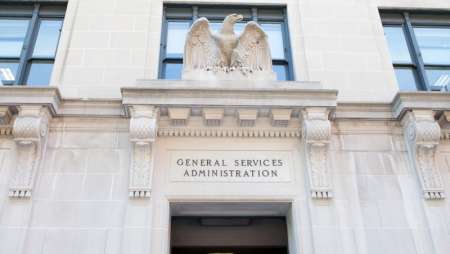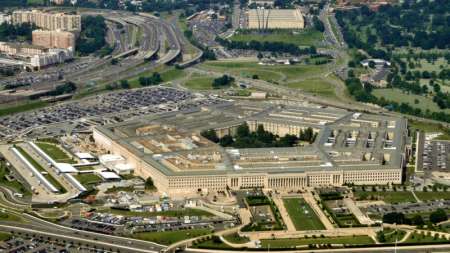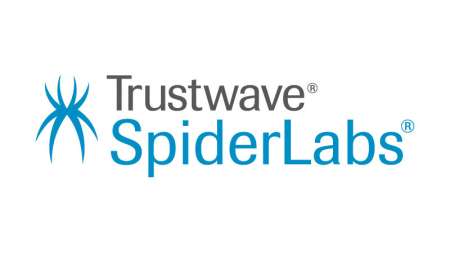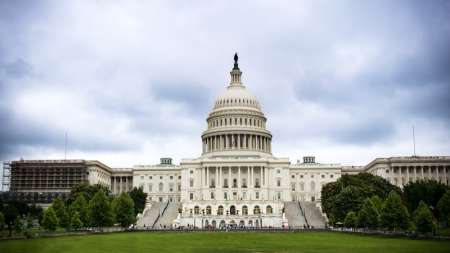On Tuesday, President Trump released his management agenda, which focused heavily on his IT modernization goals. Top of mind for the administration? Improving the customer experience, helping agencies better deliver on their missions, and reducing costs to the taxpayer. […]
Federal IT comes with some baggage–much of its data is trapped in legacy technologies. Agencies can’t realistically pick everything up and move to more modern infrastructure. So how do they bridge the gap? MeriTalk’s latest report found that improving data sharing between new and legacy systems is the number one solution to accelerating Federal IT modernization. The “Modernizing the Monolith” study explores why legacy systems are so persistent and outlines a path to modernizing with them, instead of in spite of them. […]
A recent study showing just how easy it is to hack into Internet of Things (IoT) devices–and to use that access to gain entrance to a larger network–focused on commercial products used in the home. However, it could serve as yet another wake-up call for the Department of Defense and other government agencies that are increasingly relying on IoT. […]
The Department of Homeland Security (DHS) has been working in unison with the Office of Management and Budget to assess the risk management posture of the Federal government. They’ve been using a combination of agency self-reporting and independent verification to evaluate each agency’s mitigation techniques as well as the nation’s overall security standing. DHS’ latest […]
Government IT leaders may feel a little punch drunk lately. Between new mandates, an understaffed workforce, and aging systems–they are getting hit from all angles. Indeed, Chad Sheridan, CIO for USDA’s Risk Management Agency kicked off his keynote at last Thursday’s Veritas Public Sector Vision Day in Washington, D.C. by quoting Mike Tyson: “Everybody has a plan until they get punched in the mouth.” […]
Do agencies have enough time to make a smooth transition to the new Enterprise Infrastructure Solutions (EIS) contract by spring of 2020 when the older telecom contract vehicles expire? […]
Another important piece of the emerging Federal IT modernization ecosystem is in place now that the General Services Administration (GSA) has given four companies the greenlight to start work on the first of five IT Modernization Centers of Excellence (CoEs). […]
The House subcommittees on Information Technology and Government Operations held a “State of Play” Federal IT Hearing Wednesday for the latest updates on ongoing modernization efforts, and the tone was resolute and unflinching. […]
Artificial intelligence (AI) deployments in the Federal government are already making government smarter, based on examples shared during the second of a three-part series on AI launched last month by the House Subcommittee on Information Technology. Federal agency leaders from the Defense Advanced Research Projects Agency (DARPA), the General Services Administration (GSA), National Science Foundation (NSF), and Department of Homeland Security (DHS) discussed how AI is being implemented to improve the mission of their agencies and what is required to ensure the technology continues to be viewed as a problem solver. […]
Cloud computing is now powering the next generation of technology–from artificial intelligence (AI) to Internet of Things (IoT) to machine learning, offering government agencies scalability and agility to support and analyze a massive influx of data for more informed decision making. […]
The Senate Subcommittee on Communications, Technology, Innovation, and the Internet took a deep dive look at the future of broadband in the United States during a hearing on Tuesday. “To make next-generation broadband a reality and position the United States so it can win the global race to 5G, we should modernize outdated rules that delay and add unnecessary costs to broadband infrastructure deployment,” said subcommittee Chairman Sen. Roger Wicker, R-Miss. […]
The Department of Defense (DoD) and contractor Cerner are coming off an eight week break in the initial deployment of what’s planned to be a worldwide health care records system. The team stopped work to address glitches in system performance and contend with negative user feedback. But officials in charge of the deployment of the MHS Genesis system said the pause was planned as part of the rollout, initial complaints were expected, and DoD still expects to complete the $4.3 billion system by 2022. […]
Like King Louie in the Jungle Book–Artificial Intelligence has to learn like people. Machine learning’s surely a brilliant student, but it’s still a slow learner. Once trained to recognize patterns, analyze huge amount of data, or interpret speech, they can do the job at lightning speed, often better than humans can. But the training part of that equation can be a labor and programming-intensive task, because machines still learn like machines–one thing at a time, often only after repeated instruction. […]
Not all bots are bad. But in the wrong hands, botnets can be commanded to do some very nefarious things, like Distributed Denial of Service–DDoS–attacks to disrupt and bring down websites. There are also malware-based bots that are increasingly being used to steal data and personal information. […]
Even with the Data Center Optimization Initiative (DCOI) deadlines pushed out to 2020, Federal agencies face significant pressure to expedite cloud migrations and consolidate their compute environments in a secure and cost-effective manner. Now, with the passage of the Modernizing Government Technology (MGT) Act, agencies may need to demonstrate significant progress in this area to justify their MGT Act budget requests. […]
Last month the Congressional Subcommittee on Information Technology began a three-part series of hearings to break through the myths and the hype to gain a real understanding of Artificial Intelligence (AI) and the role it can play in the Federal government. […]
The Department of Defense (DoD) on Wednesday sketched out plans for a swift, multibillion dollar move to a comprehensive cloud infrastructure, while leaving a lot of the details to be filled in along the way. […]
The Defense Information Systems Agency (DISA) has completed the transition of the Secret Internet Protocol Router Network (SIPRNet) to a virtual network, which increases its bandwidth tenfold, while supporting plans to extend SIPRNet to the very edges of the network via the commercial cloud. […]
It appears that the improved reliability and security of cloud computing is attracting more law enforcement agencies. The U.S. Customs and Border Protection (CBP) is the latest agency looking to migrate applications to a commercial cloud provider. […]
New technologies and techniques are changing the cybercrime landscape in a significant way, creating new challenges for those entrusted with protecting networks and data. […]
In times of emergency, state governors have regularly called in the National Guard, for reasons such as assisting the recovery after natural disasters like Hurricane Katrina in 2005 or to suppress protests in Ferguson, Mo., in 2014. If voting systems are under siege, should they do the same? […]
Critical infrastructure protection is so vital to the United States’ national and economic security, as well as public health and safety, that disruption or destruction of any of the 16 critical sectors would have a debilitating effect on the nation. […]
Acronyms abound with a seemingly endless stream of Federal IT regulations and guidelines related to cloud and cyber security. Trying to make sense of the madness? On March 8, at “Cyber Convergence: Security, the Cloud and Your Data,” Federal visionaries will crack the code on some of the most critical developments in government’s IT agenda – from cloud-based application security to MGT, FITARA, and more. […]
The proliferation of digital platforms within the government–including mobile devices, cloud computing and the Internet of Things–has increased the sprawl of the computing landscape and with it new vulnerabilities for potential cyber attacks. […]
Gary Newgaard is a giant in the government IT industry. For those of you who don’t know him, I’m not just saying that–I’m six feet tall and standing next to Gary makes me feel like I should join the lollipop league. […]
Reports surfaced five years ago that the Kremlin had started buying typewriters to avoid computer leaks. Suffice to say, it’s a complicated cyber world out there today–from nation states to cyber criminals to organized crime to 400lbs guys in their bedrooms in New Jersey. And, in this dynamic environment, the only thing we know for sure is that the way we’ve done things before won’t protect us anymore. Trustwave Government Solutions is debuting its new Threat Hunting service for forward-leaning government agencies that are tired of having their cyber clocks cleaned. […]
Federal CIOs and industry execs gathered on the Hill Thursday evening to celebrate the passage of the Modernizing Government Technology–MGT–Act and map the path ahead. Judging by the standing-room-only crowd, seems government, industry, and the Hill are betting big on the legacy IT euthanasia program to break Federal IT’s failing status quo. […]
Pentagon and allied leaders agree that future conflicts will likely take the shape of a “hyperwar” –a fast-paced clash guided via cyberspace and accelerated by artificial intelligence, but with real, even possibly nuclear, consequences. NATO’s most recent risk report, the GLOBSEC NATO Adaptation Initiative, states that the next world war could come as a hyperwar, and says North Korea, China, and Russia are working on the capability. Speakers on a panel at this month’s AFCEA West 2018 conference in San Diego agreed, emphasizing that the United States needs to keep up with technological developments being adopted by other countries, particularly with regard to artificial intelligence (AI). […]
With the passion of an evangelical, Deputy Defense Secretary Patrick Shanahan preached the Defense Department’s (DoD) “uncompromising” approach to cybersecurity last month at the AFCEA West conference in San Diego. And, his sermon included spreading the responsibility for cybersecurity to industry as a condition of winning contracts. […]
About five years ago, many law enforcement officials wondered if the cloud was safe enough to hold their data. Now the FBI, the nation’s top law enforcement agency, is considering a move to a large-scale, commercial software cloud provider. […]






























